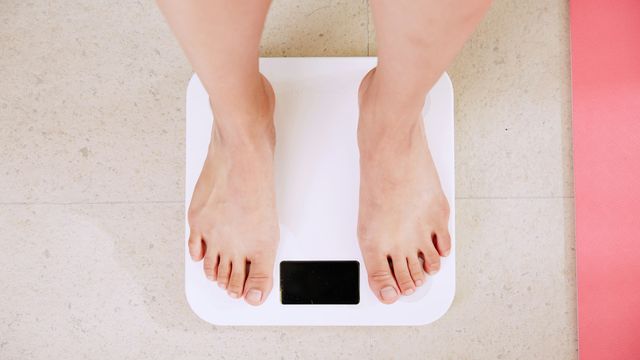“As people age, their cognitive ability tends to gradually decline,” Na said. “This is natural, and we saw that in this sample. But we also saw that people whose weight varied the most experienced more rapid cognitive declines.”
The researchers grouped participants based on how much their weight varied during the study. People whose weight varied the least demonstrated the lowest amount of cognitive decline, while people whose weight varied the most demonstrated between two and four times as much cognitive decline. This result also held true when the researchers compared variability in waist circumference and body mass index (BMI) to variability in cognitive decline.
In another analysis, the researchers found that both losing at least 5% of one’s weight and cycling between weight loss and gain of at least 5% of one’s weight were associated with faster cognitive decline. The results indicate the dangers of losing or fluctuating weight for older adults, Na said.
Older adults who gained weight demonstrated roughly the same level of cognitive decline as those whose weight remained stable. However, the researchers explained this does not suggest that gaining weight is a good idea for older adults.
“Mid-life obesity is a known risk factor for cognitive decline later in life, but there is an ‘obesity paradox’ associating late-life obesity with a healthier cognitive trajectory,” Na said. “Some studies have revealed a complex interplay between age-related muscle mass loss and fat gain in older adults, and our study does not suggest older adults should gain weight.”
The findings suggest that monitoring older adult weight could provide additional information that could be useful in protecting cognitive health, but, according to Na, individuals should not rely just on doctor visits to track weight.
“From one doctor’s appointment to the next, the way weight is measured may not be consistent,” Na said. “Perhaps you have your coat and shoes on one time, and the next time you are in light clothes and socks. To make sure you understand what is happening to their body and brain, older adults should track their weight at home in a more consistent way. For example, a person could weigh themselves around the same time in the morning after getting up, before breakfast and after a bathroom trip while wearing the same pajamas. This would provide them with very consistent data. Then, if their weight is not stable, they need to let their physicians know.”
Reference: Flores AC, Wennberg AM, Leung CW, Na M. Variability in body weight and body composition and cognitive trajectories in older adults in the United States. Obesity. 2025:oby.24309. doi: 10.1002/oby.24309
This article has been republished from the following materials. Note: material may have been edited for length and content. For further information, please contact the cited source. Our press release publishing policy can be accessed here.
